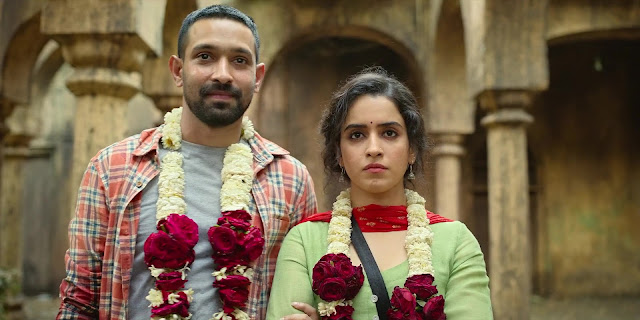By Pankaj Sachdeva

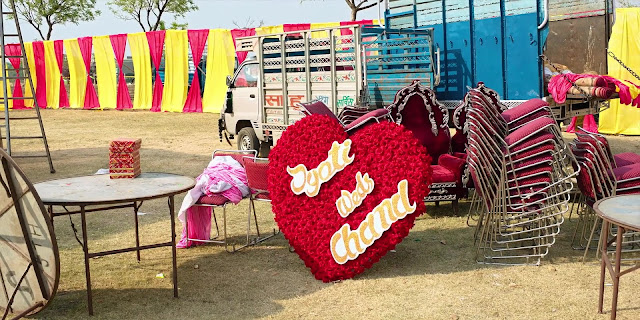

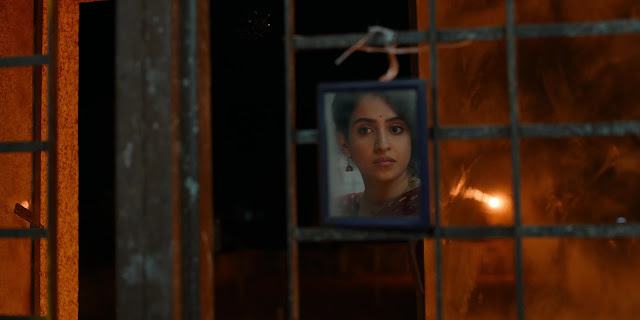


The medium for the powerful families to eliminate rebellious lovers is a man called Dagar. He is a menacing figure who has burn-inflicted scars over him. He is a beast who hunts and kills not just the bhagode couples who indulged in inter-religious marriages but also all other people who assisted these couples. When Dagar is injured, he does not go into a hospital for humans; instead, he goes to a veterinary hospital. He also has this thing like Bob Biswas, where he takes selfies of people before killing them. He gradually develops a liking for a friendly canine and takes it with him on his travails, like Hathoda Tyagi (Abhishek Banerjee) from Paatal Lok developed a fondness for dogs. Toward the end, the dog runs out of the car. Dagar crosses the road to pet him. A truck zooms by, killing Dagar instantly. Early in the film, a girl, whom he killed, curses him that someday he will fall in love and then he will realize how it feels. “Tera bhi dil aave kisi pe,” she tells him. Her prophecy came true. It is love that kills Dagar.

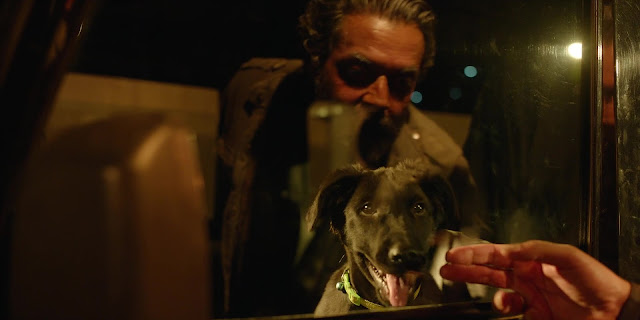
In terms of story, Love Hostel does have not anything novel. However, I liked the tiny details in the film. For instance, the truck that kills Dagar has Has Mat Pagli Pyaar Ho Jayega written on it. The song that plays on the radio during the said scene is Ya Allah Ya Allah Dil Le Gayi from Ujala. “Koi rangeela sapnon me aake, ek najar se apna bana ke. Pyar ka jadu hampe chala ke. Ya allah, ya allah, dil le gaya.” Both these artifacts remind us of the girl’s curse of Dagar falling in love. Early in the film, Jyoti and Ashu elope and meet in a secluded place. In the first scene, the camera pans to Jyoti’s feet, which are shown in the air when she is held up in the arms by Ashu. Toward the end, the same shot is repeated but in a different and chilling context. The camera pans to her feet, where she is again being held up in the air when she is tied to the rope while Dagar watches her. Raman has also been a cinematographer in his career. It is discernible that the director has a penchant for cinematography. The film is exquisitely shot by cinematographer Vivek Shah. Dead bodies looks absolutely symmetrical without any dirt or disorder. The gunshot wound is perfectly circular. Blood adds to the perverse beauty of the dead bodies. In another scene, a shot of half-dried flowers over a car adds a layer of sadness to the story.

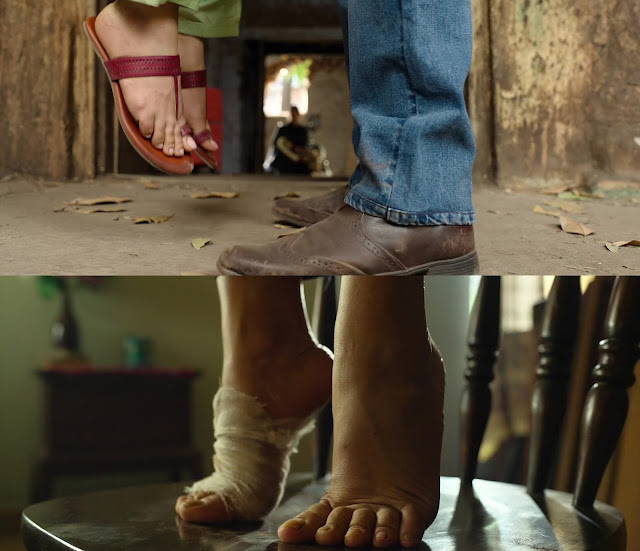
In Love Hostel, the children are used as a motif where they are often present in violent situations but unafraid of the bloodbath in front of them. When Dagar goes to kill the lawyer who helped Jyoti get married, an irritated kid playing video games and wearing headphones opens the door. The kid’s entire family is killed, and he is simply busy playing. Later, during the shootout at the hotel where Ashu delivers meat, a young girl, also wearing headphones, sits on the aisles. After the gun fights, she tells Ashu that he has blood on him. Later, in a similar scene, a young kid tells Dagar that he has blood on him when Dagar saunters into a wedding and starts indiscriminately shooting at people. And, the terrifying character in the film is another young kid—Rakesh (Yudhvir Ahlawat), Jyoti’s brother. Think of Sandhya’s brother from Dum Laga Ke Haisha, who was shown for comic effect. But add violence and rage and multiply by hundred times to get Rakesh. He is the one who violently hits Jyoti with a stick when he finds out about her affair with Ashu. He is the one who reveals Ashu’s Muslim identity to her family. He is the one who kills Ashu in the end. He had this rage that he was willing to kill his father for standing up to his grandmother. It is a reminder of how children are not always beacons of innocence, and it is they who ultimately grow up to become perpetrators of violence. In a telling moment, when police inspector Sushil Tripathi (Raj Arun) comes looking for Dagar at Kamala Dilawar’s place, she tells him any of the kids playing around her could be Dagar, so which Dagar is he looking for?
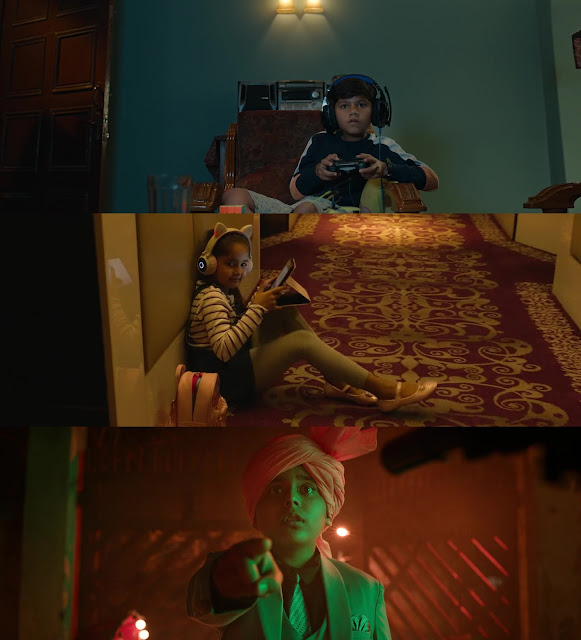

Love Hostel is also a film that depicts the manifestation of male depression in different forms. The men in the film are grieving and are advised to take help. Two characters—Sushil Tripathi and Dagar—go through similar trauma. Both these men lost their brothers. Sushil’s younger brother performed self-immolation after he married another girl from a different religion. Maybe it is why he is kind to Ashu, as he sees his brother in him. Dagar’s elder brother also took his own life after his daughter eloped with a man from another religion. Both Sushil and Dagar suffer from depression but refuse to accept help. Sushil has nightmares even today, prompting his wife to urge him to seek therapy and let it out. “Dil ki baat dabakar rakhna jhooth hi hai,” she tells him. He is taking (sleeping) pills, but he dismisses the suggestion. On the other hand, Dagar takes to violence to deal with his trauma. He is called a bimar and is told by people that he needs to get treated. He is falsely living under the belief that he is a social reformer.

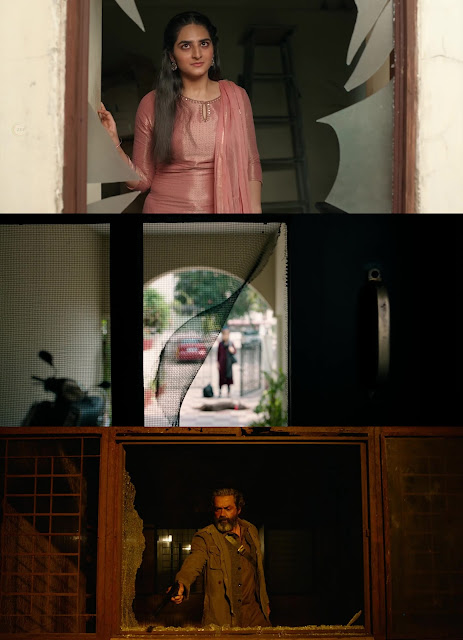
[Read more of the author’s work on his blog here]

